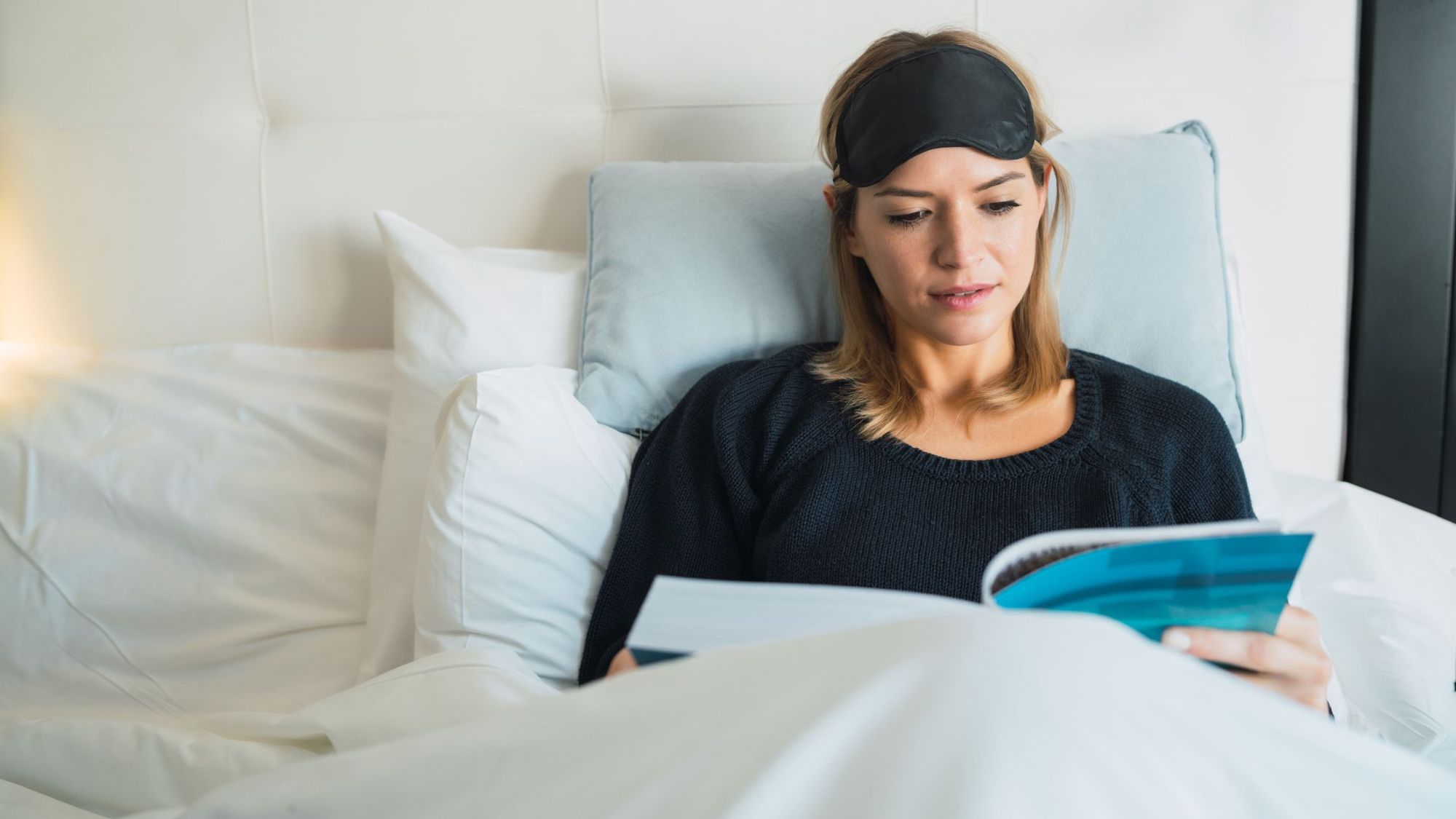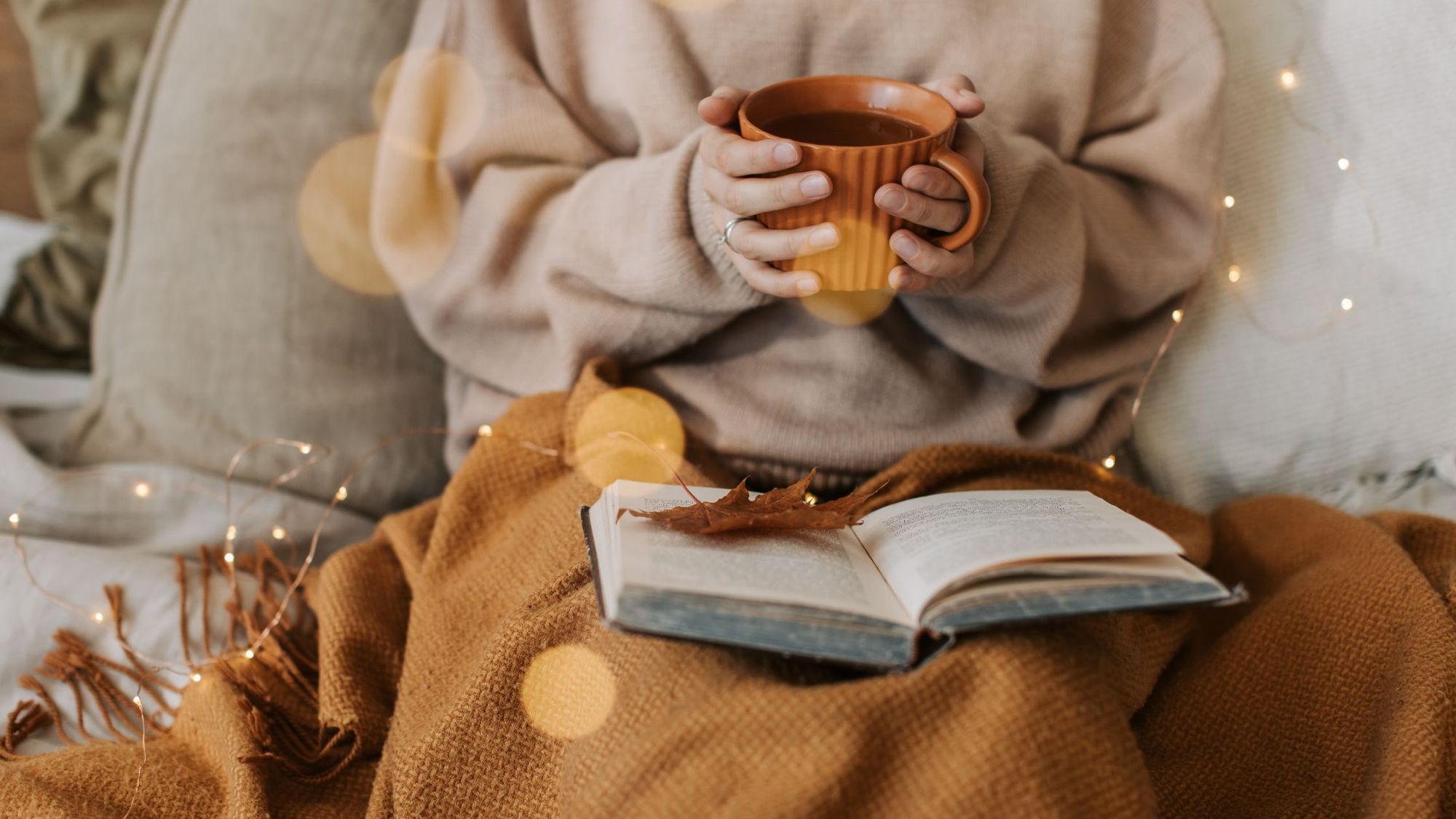
If you have trouble falling asleep, the right answer to your problem is to develop a bedtime routine that works for you. Quality sleep is crucial for your mental health, physical health, and hormonal health. However, the answer is never to start taking prescription sleeping pills. This is because sleeping pills can cause neurological issues such as memory loss, as well as dependency and depression. Here’s some more information on the health risks of prescription sleeping pills.
These days, most doctors try to suggest melatonin for their patients who struggle to sleep, rather than writing them a prescription. Melatonin is much safer.
However, with the right bedtime routine in place, you might not need to take anything to fall asleep at all. It might start to happen naturally, as you improve your sleep hygiene with a good bedtime routine.
Sleep hygiene is an evening practice that involves setting up a bedroom environment that promotes sleep, and incorporating bedtime behaviors that help with relaxation and winding down. Executing good sleep hygiene is all about establishing a bedtime routine and practicing evening habits that are conducive to relaxation and a good night’s sleep.
Who Stands to Benefit From a Good Bedtime Routine?
Some people have no trouble at all falling asleep. Others, however, need a good bedtime routine to help them fall asleep.
Below are some signs you would stand to benefit from better sleep hygiene and a good bedtime routine:
- You have trouble falling asleep due to anxious thoughts, inability to wind down, or another reason.
- You have difficulty falling asleep due to your genetic sleep traits.
- You struggle with insomnia.
- You have a circadian rhythm disorder.
- You’re trying to stop taking prescription sleeping pills.
- You want to start going to sleep earlier so that you can wake up earlier.
Bedtime Routine Tips and Ideas That Really Work
Everyone has a different bedtime routine, and that’s because different practices work for different people.
While almost everyone finds that avoiding screens (such as TV and smartphones) an hour before bed helps them fall asleep, not everyone finds that taking a warm bath helps them fall asleep.
To find a bedtime routine that helps you fall asleep and works for you, some experimentation might be required. In no time, you’ll figure out what works, and you’ll have established a healthy bedtime routine so that you’re no longer staying up way later than you wanted to.
Below are 5 bedtime routine tips to try out:

1. Read or Journal in Bed by Candlelight, and Turn Off all Electronic Devices
Soft lighting such as candlelight or the gentle pink glow of a salt lamp will help trigger your brain to wind down.
Reading a book or writing in your journal with soft lighting will also help your brain and body relax. This is a bedtime activity that you could start about one hour before your desired bedtime.
The last thing you should do before bed is watch a TV show, scroll through your newsfeed on your smartphone, or use electronic devices such as iPads or laptops.
This means that at bedtime, you don’t want to read from a screen. Read an actual book.
2. Set Up Your Bedroom as a Sleep-Promoting Environment
There are many things you can do before bed that help set up your bedroom to promote better sleep. This includes:
- Make sure your bed is made with soft, clean sheets.
- Removing any distracting clutter such as dirty dishes.
- Remove all electronic devices except for your alarm clock.
- Turn off ceiling lights and only leave a gentle lamp on, such as a small salt lamp.
- Turn on your fan if white noise helps you sleep.
- Use a room spray with a calming scent such as lavender.
- Ensure your bedroom temperature is the ideal temperature for falling asleep.
- Close any curtains or blinds.

3. Drink a Warm Beverage Such as Sleepy-Time Tea
While you’re reading your book before bed or journaling, try sipping on a warm tea as part of your bedtime routine.
Be sure to drink something that is known for helping people relax.
Passionflower tea, magnolia tea, valerian tea and chamomile tea are examples of beverages that can help you sleep. They’re widely known as natural sleep aids, and they’re much healthier alternatives to sleeping pills.
4. Release Anxious Energy
Anxious thoughts or feelings can make your body and mind resistant to sleep. Certain relaxation exercises are known for helping release anxious energy. Here are some ways you can release anxious energy, and prepare for a restful night’s sleep:
- Try one of these breathing exercises. Deep breathing helps regulate your nervous system, so you can start to feel much more relaxed and ready for sleep.
- Talk yourself down by verbalizing what you’re anxious about, and challenging the anxious thoughts out loud so that you can let them go.
- Clench and unclench your fists. This helps expend anxious energy. You clench your fists for 10 seconds, then release, then repeat. Do this a few times.
- Tense and release different muscles in your body. Try tensing your quads or other large muscles in your body for a few seconds, then release. This helps you release anxious energy. This is a form of ‘progressive muscle relaxation’. According to the Sleep Foundation, the 4-7-8 breathing technique as well as progressive muscle relaxation can help those with insomnia fall asleep easier.
5. Listen to a Guided Sleep Hypnosis, Sleep Music or Sleep Sounds
Did you know that certain sounds can help you fall asleep? For some people, their favorite sleep sound is the sound of rain. Others feel calm when they hear ocean waves, or storm sounds such as thunder and rain. In addition to sleep sounds, there are also many different types of brain wave music that can help you fall asleep.
Furthermore, a guided sleep hypnosis can be extremely beneficial to close your eyes and be guided into a deep sleep by a soft voice.
You might find these types of sleep sounds on smartphone apps such as the Calm app, or on YouTube. Michael Sealy is a fantastic sleep hypnosis YouTuber, for example.
The key here is to experiment with different sleep sounds and guided sleep hypnosis tracks in order to find something that works for you.
It’s crucial to write down or save the one you find that works. You wouldn’t want to lose it and never be able to find it again. If you find something that truly works for you and helps you fall asleep, be sure to save it and continue to use it each night at bedtime.
Are Your Genetics to Blame For Your Sleep Problems?
Certain sleep traits such as the length of time it takes to fall asleep, and whether you’re a light or deep sleeper, are genetic.
Quality sleep is vital for mental health, physical health, and balanced hormones.
If you’d like to improve your sleep, consider taking an at-home DNA test from CircleDNA and reading your genetic sleep traits. This way, you’ll figure out what your biggest obstacles will be when it comes to falling asleep and staying asleep.
Through your DNA test and your genetic sleep profile, you’ll find out how much sleep you need (yes, there is a ‘short sleeper’ gene) as well as how likely you are to be a deep sleeper, or whether you’re genetically likely to have trouble falling asleep.
You might even learn about genetic sleep disorders you’re at risk of. This is all pertinent information to be aware of for optimal sleep and optimal health.
References:
Relaxation Exercises To Help Fall Asleep via the Sleep Foundation https://www.sleepfoundation.org/sleep-hygiene/relaxation-exercises-to-help-fall-asleep





